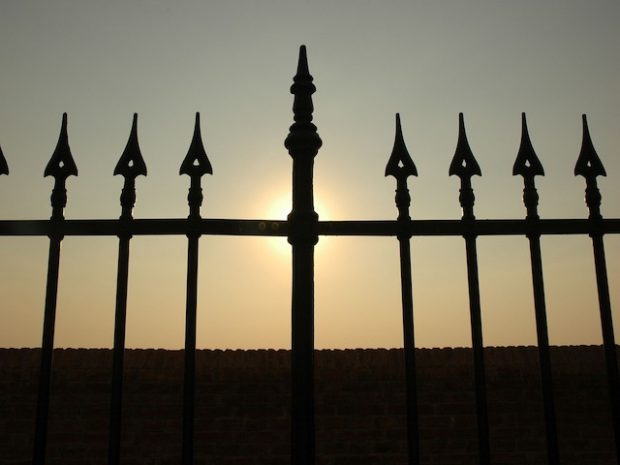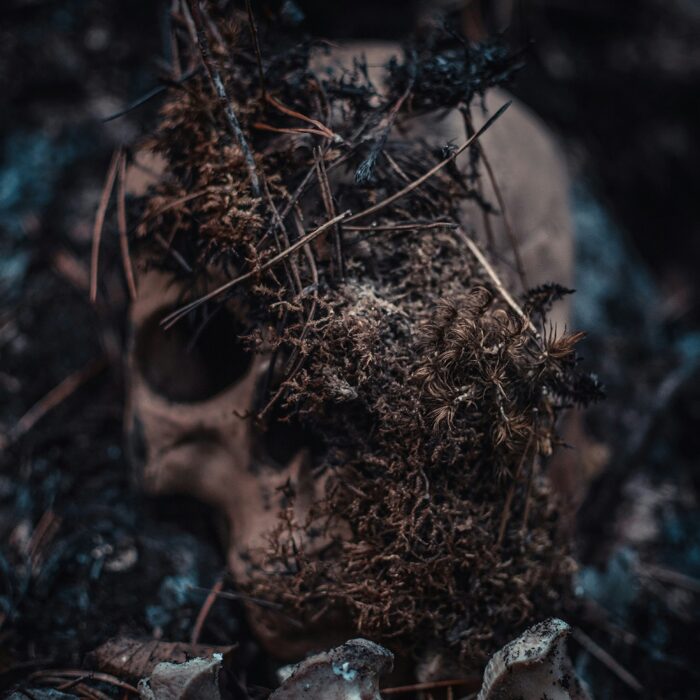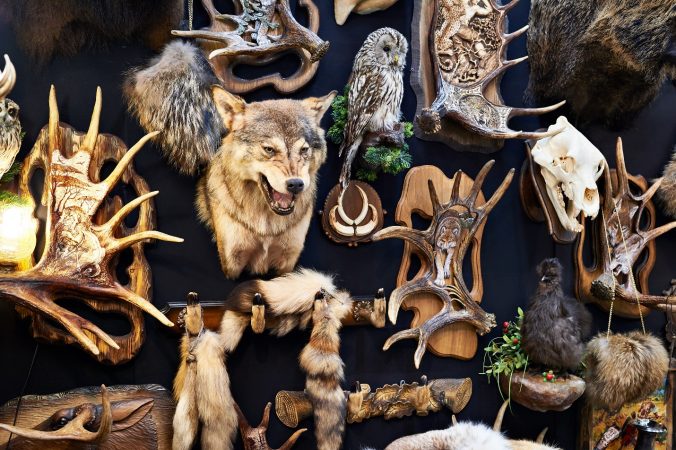You have no items in your cart. Want to get some nice things?
Go shopping
They are your earliest memory. Beaked noses. Hair like clouds. You’re a child, four at most, and wear the dress your mother bought, the socks with scalloped edges. Your mouth is red with popsicles, your teeth rough with sugar.
“Remember me?”
The giants leer, red-nosed – great aunts and uncles on your father’s side. Bob, Wayne, and Bill; Geri, Fern, Jean, Mae. Russ died months ago but his name is often spoken. It’s hard to remember he’s gone.
Grandmother holds court in their center. With high cheeks and strong jaw, she is the handsomest in the room. Boxed wine fills goblets. A Tripoley board is brought forth.
Watch from the top of the stairs until the dog, a gray poodle, runs past. Chase after, down the hall to the back room where Grandmother sleeps now that Grandfather snores. A cat is there, curled like a pillow atop the bed, among handbags. The dog crawls under to hide; you crawl under too.
It’s a long time before Grandfather finds you. He is tan and thin; his limbs splayed like a spider to peer under the bed. Shriek. Run but not hard. Let him catch you round the waist and carry you to the basement, where he shows how to crack nuts with silver tools, build towers of magnetic flakes.
When you are tired, he turns on speakers that are built into a wooden bar. Colored lights dance the walls and ceiling. He dances too, growing as he does. He grows until the room is not tall enough to hold him and he must curve his back to fit. Even then, his elbows knock divots into walls. His head pushes the ceiling, raising the floor above, where other giants spill their wine and curse. Only then does he diminish back to size and cradle you once more in his arms.
Eyelids droop.
His face is all you see.
*
You moved from the city on the ocean four states away.
“To be near family,” Mother says. She does not add in case Father leaves.
But the town you’ve moved to isn’t hers at all – it’s Father’s – and she cries when she thinks you aren’t looking.
“This town is too close,” she says to Father. Everyone stares. Everyone knows her name. “Like being always on a stage.”
You’ve been on-stage, violin tucked under chin. You can’t see on-stage. You hear people watching but cannot see them. The lights hurt your eyes and you sweat.
Picture Mother there, the round, white light on her pale, pale face. Picture people staring, shadows moving, Mother pinned, blinded by the light of Every One’s stares.
No wonder she cries.
*
For Halloween, Mother paints your face with lipstick and shadow; your hair is braided into pigtails and you wear a blue gingham gown. A plush dog rests in a basket that hangs from your arm.
“Not in Kansas never looked so good,” Mother says.
It’s the first Halloween your baby sister can walk on her own, apart from the stroller, and she grasps your one finger with all of her own. Russ’s widow Mae waits, porchlight on, for you to knock on her door. She wears a black witch’s hat; cats curl the staircase behind her.
She croons, “I’ll get you, my pretty,” and your sister cries.
“It’s late,” says Mother, an apology.
Father carries Sister to the car. Mother follows.
You are the only one to see Mae slip into shadow, tall as the bare-branched trees, silent as a bat, seeing you safely home.
*
Swagger your steps at the supermarket, the church, the pavement outside Grandfather’s shop. You are famous. Joe’s granddaughter, Bob’s great-niece, Scotty’s eldest.
“Everyone knows me,” Mother cries to Father. “I can’t go anywhere.”
“You’ll get used to it,” he says.
She takes the keys and leaves. The door bounces too many times behind her.
Ask if she will return.
“Of course,” Father says. “Of course she will.”
Hold the Lucky 8 ball Grandfather gave you. Shake it and repeat, silently, to yourself of course, of course she will.
And, of course, she does.
*
She leaves you at Geri’s, to drive to the mall an hour away.
Geri’s lips are gummy and red. Her face droops more than Mae’s, more than Jean’s and Grandmother’s and Fern’s. She has her brothers’ faces, their own beaked nose. Her husband Bill sits, as always, beneath an afghan in the chair nearest the window. On her mantel are photos of children not her own. She walks you along the row, naming them and how she knows them. You’re older now – old enough to understand there is sadness here, but not old enough to understand why. She makes chocolate chip cookies for you and your sister, pours glasses of Sprite, though neither of you like chocolate or Sprite. Your sister, still very young, opens her mouth to protest. Kick her under the table.
When it’s time to leave, forget your coat. You must run back inside, Mother says. Find Geri crying in a chair beside Bill’s. Tears flood the floor. Children’s photographs float, knock about your knees. You must wade them to get to your coat, hung on a peg in the corner. Geri holds her arms to hold you, but she isn’t Grandfather and you’d rather not. Try to run but slip in the flood. You can’t swim. Drown. Feet scramble for a hold. Arms splash too hard for Geri to grab.
The door opens and there is Mother. Run to her, tears streaming the door, tumbling the porch, drenching the ground.
Mother.
*
The giants do not have many children, much less grandchildren. Run with your few cousins through the park, over fairy bridges to fountains made of limestone where you drink after paying the troll. There are geese to feed, monkeys upside down in cages. Pebbled paths. The giants bring you here – sometimes singly, sometimes in groups. Iron gates open at a touch from their hands. Magic, you think, slipping your own hand into one of theirs.
*
Bob’s house sits atop a hill, above a winding drive. It’s on the edge of town and everyone must pass it as they come and go. A welcome sign of sorts, tall and very white. You are proud walking to it, climbing the stairs that lead inside. Enter without knocking.
It’s Christmastime and the house is full. You know these people and run possessively through great halls. Drink juice mixed with soda until your stomach bubbles.
In the front room, giants and their grown children choose presents from a pile. They roar until they cry, steal booze and lottery tickets from one other, avoiding the flamingo yard ornament that will be wrapped and brought again next year.
You are still young enough to have presents picked especially for you. Fashion dolls, coloring books, glass beads for your neck, bottles of polish for tiny nails. Show these to the giants who smell of smoke and drink – the doll with her tiny waist, the beads sparkling against your neck.
Bob steals an ear when you sit on his lap, slips it from your head with a thumb and forefinger. He shows it to you, lying on his palm, when you begin to cry.
Only Jean, his wife, he says, can put it back and she does, setting the ear gently against the side of your head with a touch as hot as the sun’s, soft as a petal’s.
Then Bob laughs and it fills the room, lifting you on bubbles no one else can see. Jean pulls you back. She holds you as Bob wipes his eyes, pops bubbles with stout fingers. She doesn’t let go until the last bubble is popped and it is time for you to leave.
Hug Geri quickly, linger with Grandmother, hide from Mae. Blow a kiss, instead, near the bejeweled tree where bat shadows threaten. Watch Mae catch it, the print of your lips against a powdered cheek.
Outside, frost hovers. Stars reflect, like pins, in the snow.
Make a wish. Watch the air still. Flakes hang without falling; all the world cupped within a globe.
Breathe and it shatters.
*
Eventually, you move with your family away from the town where Mother was too well-known. You move into the country nearby, where there is no one. Woods line the back of this new house and there is a clearing where someone once built fires ringed with stone. The trees here are always bare – summer, spring, winter, fall. They are enchanted trees where orphans, when no one is looking, go to mourn.
At the new school, no one knows your name. Sit in the back with your head down. Tell everyone you’re an immigrant because you were born in the city on the sea. Blush when they laugh. Disagree when the teacher says it isn’t the same thing. It is.
*
Another Christmas, another house. Your own, this time. Giants stuff the edges of it. They are smaller now, unsure of how they used to be big. The cards and booze are claimed mostly by their children. Wayne and Fern are gone. Mae. Their absence is a hole that will gradually shallow. Mother demands Christmas carols from you and you play, violin tucked under chin, in a corner. Downstairs, your few cousins and sister play air hockey. The house is full of noise.
“Where are the jobs?” Father’s sisters ask. “What do we expect?”
The Gazette printed an article about the death of Small Town America. Children grow and leave, never return.
Grandmother, in slacks and matching sweater, strings of pearls along her wrists and neck and ears, pours sparkling juice into a flute for you. Finish your song and sit beside her.
She pats your knee. Says you play well. She’s proud of you. Her eyes water like ponds.
“Get out if you can,” she says. “This place is ugly.”
Paintings she’s made hang from the walls of her home, the walls of yours and your aunts’ and all the living giants’. They are of the prairie and are more sad, you think, than ugly.
Across the room, Bob and Grandfather laugh. It isn’t like Bob’s laugh of years ago, but it is strong enough, still, to push you and Grandmother against the wall, cracking it so that every time you pass that room from now on, you will see the crack and remember that night and that laugh. The way Grandmother sounded, urging you to leave.
*
Go with Jean when she visits Geri before Bill dies. Don’t enter the room he’s in – the room that echoes machine-forced breath. Let Jean enter that place alone. You stay in the living room, where the sun shines many windows and photos fill the shelves of a new bookcase. Geri serves chocolate chip cookies and Sprite. You no longer mind.
But she calls you by your aunt’s name and, this, you do mind. Look away. Ask about the children in her photographs.
“I don’t know them,” she says. “Who are they?”
Name them for her. Point to each in turn until Jean returns and says,
“He’s better. For now.”
“Who?” Geri asks. “Who’s better?”
“Your husband. Bill.”
Jean touches her shoulder. Geri’s eyes light.
“Bill,” she repeats.
But Jean must leave and you must follow, glancing behind to say goodbye. Already, Geri’s light is gone. She sets a trash bin beside the bookcase and sweeps her arm; children’s faces tumble.
*
Attend Bill’s funeral, then Geri’s. Curl your hair and paint your lips; you’re old enough now. Next is Bob’s, where Jean refuses to leave the casket and stands beside it through the entire service, clutching his hand as if, even this, she could heal. Remember your ear and think maybe she can.
She can’t.
Your giants’ powers, you’ve noticed, are faded.
“You don’t have to come,” Mother says about each visit to disinfected rooms, parlor viewings with bodies laid like wax upon tables.
There are scholarship applications, auditions.
“People don’t expect you,” she says.
Tell her you want to. It’s partly true.
Grandmother is handsome as ever, even as the others fade. Grief becomes her. High-collared black tickles her jaw. People calm as they speak to her, grow less teary. Even Jean, she manages to coax away from Bob’s body.
Afterward, always, Grandfather plays music from his disco bar. The lights still flash, but he slumps like the curved shrimp ringing crystal bowls upstairs.
The air that once filled him has been taken from him and given to you. When he asks for a dance, lift him with one finger, spin him as he once did you. Ignore the tears that fall like acid from his face, burning carpet, sizzling the wood underneath.
*
At auditions, fingers slide over catgut strings. Scatter notes like pearls from a broken strand.
Choose the school that is furthest away, in the city on the sea.
*
Here, music turns from pearls to stones.
Change majors. Get married. Work. Have children.
Mother calls to say Grandfather is fading fast. Tell her you know; you’ve seen pictures. Snarl your voice so that she knows – what she says must not be spoken.
The air tastes of salt. Dolphins curl from water. Your children take turns burying one another in sand. The pier is bloody from fish. Sand pipers run like the chicks your great-grandmother used to have, but you don’t think of Great Grandmother; you were too young. Think only of chicks without knowing why.
Waves hiss where the pipers run. Foamed fingers claw tracks from sight.
*
The days are long. Quit your job because, you say, you want to squeeze every moment you have.
But the days are long. It’s hard to remember to squeeze.
Find yourself crying often, the way your own mother did; stop as soon as you can, hope the children didn’t see though, of course, they did. Your youngest cries with you – over cheese that isn’t cut and cheese that is. Your oldest can’t quit touching you – hands slide under the long sleeves that you wear, stroke the undersides of your arms, where the skin is softest. When they hug you, it is as hard as they can, afraid that you’ll leave.
You’re afraid, too.
Pull away. Tell them it hurts. They have giant blood in their veins and are stronger than they know.
Lock yourself in the bathroom. Ignore their pounding.
Outside, they wait. Heavy breath beside the door. Four arms wrapping the moment they see you. Pulling away is like cutting vines.
*
When he dies, Father is the one who calls. You’re brushing the oldest’s hair.
“I have news,” he says.
Let your tears fill the room, trickle the door’s seams, rush the hallway beyond. A waterfall roars the stairs; your oldest nearly drowns. She floats beneath the surface, hair like seaweed about a petal face. Eyes like stones. Grab her from the flood. Dip your fingers to wet them, then draw them over the walls. Paint pictures with your tears to cheer her. Emerald and gold stretch where you paint. Paint a picture of Grandfather, the way he filled a room.
By the time your youngest enters, the flood has dried and your head knocks the ceiling. Hunch to fit. Splay your knees in a kind of jig, swing these girls about the room.
*
At the funeral, feel an intruder. The people filing past, faces shining, lay stronger claim than you. Shrink beneath the weight of your parents’ grief, your aunts’. Watch the faces of your sister, your few cousins – rounder and deeper set than you remember – watch their grief play out. Wonder if yours is real at all.
They say things and write things and read things.
Not you. Your mouth is a cave collapsed on itself.
*
Afterward, at Grandmother’s, is a box full of puppets. The room has been made into a stage. Children are a rarity; yours the only ones. Adults crowd to watch. Grandmother pours sparkling juice into goblets, hands them to your children.
“I shouldn’t spoil their dinner,” she says, “but who knows if I’ll see them again.”
Tell her this is nonsense.
Jean smiles like a Cabbage Patch in a corner nearby. She doesn’t know you and tried pulling away when you gripped her hand to make her remember. She cried and you let go. Now, she has forgotten again and her face is dimpled with smiles.
Above her, rests Grandfather’s shadow and Bob’s with him. Mae’s arms, like wings, fill the ceiling and there is Geri and Bill, Wayne and Fern; even Russ, whom you never knew.
Say, “We will always see you again.”
The girls finish their show and Grandmother pulls a turkey hat from a shelf. Its wings flap at the touch of a button.
“Gobble,” it says.
“Gobble gobble.” Grandmother mimics. “Gobble gobble.” Flapping her arms.
Your girls roll like beetles on their backs, laughing until they cry. In that moment, Grandmother stretches as tall as Grandfather that day he danced in the basement. Air lifts you to your back, above the chair where you sat, and you hear Bob’s laugh before realizing – it’s your own.
*
Light falls in the cemetery, where you’ve gone with your children for a walk. Your husband stays behind and your mother is with him, telling him she knows. The shock of this place. Your father sits in the chair Grandfather used to take, rocking in the window. The town is small enough you think you see him, the shape of his head in that window, from your perch on the hill.
Your children run between headstones, the way they couldn’t that afternoon when mourners stood like wraiths and a canopy spread the hole in which they placed Grandfather.
Now, the cemetery is empty. Mist creeps beyond the ridge. The girls twirl. When they run, their shadows reach to the tops of trees. Their arms spread for balance. If the straight and pebbled path were just long enough, they could lift off. Could fly.
Screech, “I’ll get you, my pretties.”
Their laughter is sharp as stones.
When they tire, point to the name they don’t know – the name that is your own.
“Trautwein,” you read.
Here, Trautwein. And there. And here again, across the path.
Read aloud names and dates.
“Parents of,” you read and your oldest is old enough to take your hand.
The youngest asks when you will die.
Tell her, “never,” unable to lie.
About Stacy Trautwein Burns
Stacy Trautwein Burns’s flash fiction has been published online at Smokelong Quarterly, Lost Balloon, and New Flash Fiction Review (among others) and has been anthologized in print with Bath Flash Fiction and Reflex Fiction. She holds an MFA in creative writing from Colorado State University.
- Web |
- More Posts(1)




